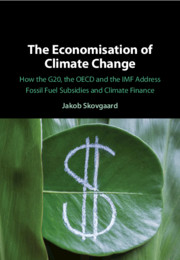How do powerful states control international organizations (IOs)? In contrast to the conventional wisdom that treats weighted voting rules as the primary means that powerful states use to codify their asymmetric control in institutional design, we propose that funding rules are equally important. Our framework develops a logic of substitution whereby permissive earmark rules—that allow donors to stipulate how their contributions to an IO are used—are a design substitute for weighted voting from wealthy states’ perspective. Whether asymmetric control is incorporated in design through voting or funding rules depends on whether egalitarian norms emphasizing political and legal equality, or shareholder norms emphasizing influence commensurate with financial power, govern voting and representation rights at the IO. Focusing on the domain of climate finance, we demonstrate that weighted voting rules are used at international climate finance institutions (ICFIs) associated with multilateral development banks, but that wealthy states pursued permissive earmark rules at ICFIs within the United Nations system where egalitarian norms are strong. In this way, powerful donors can exert control over resource allocation even when developing states appear to hold equal influence on governing bodies. In addition to providing a reassessment of how power translates into control at IOs, our framework offers insight into forum-shopping behavior and sheds light on substitution dynamics that involve other dimensions of design across a range of issue areas.
